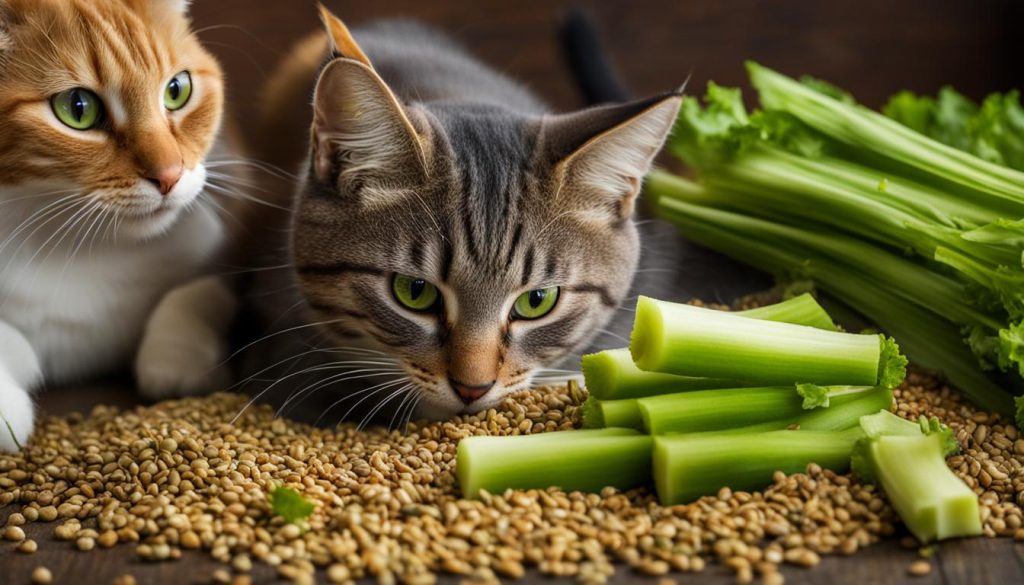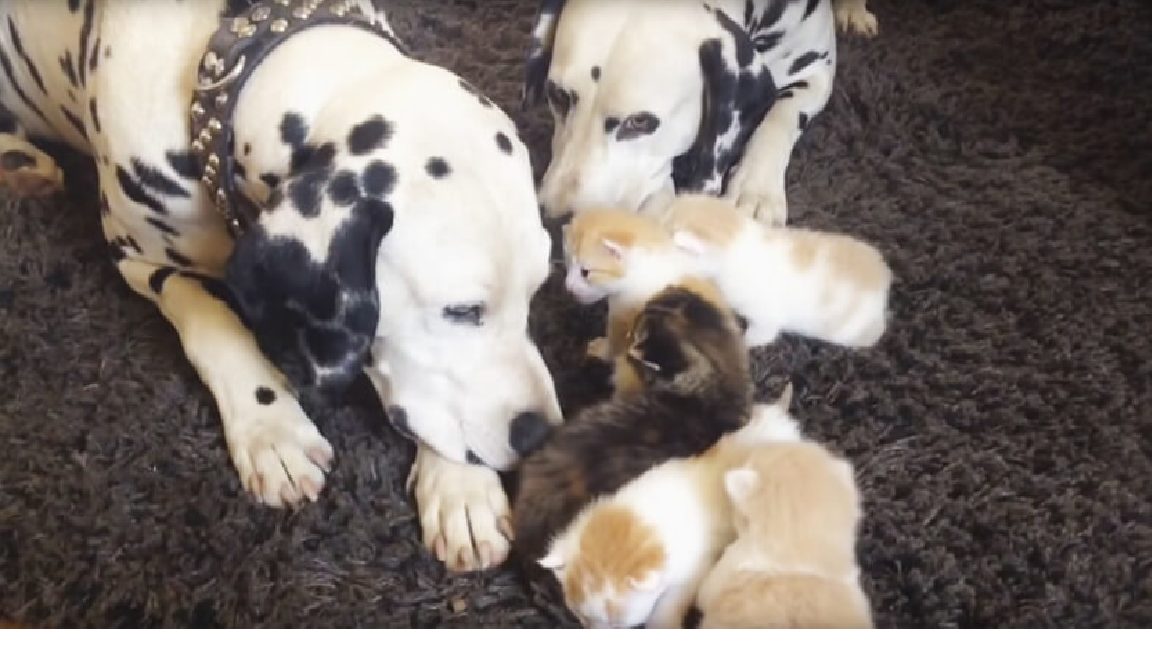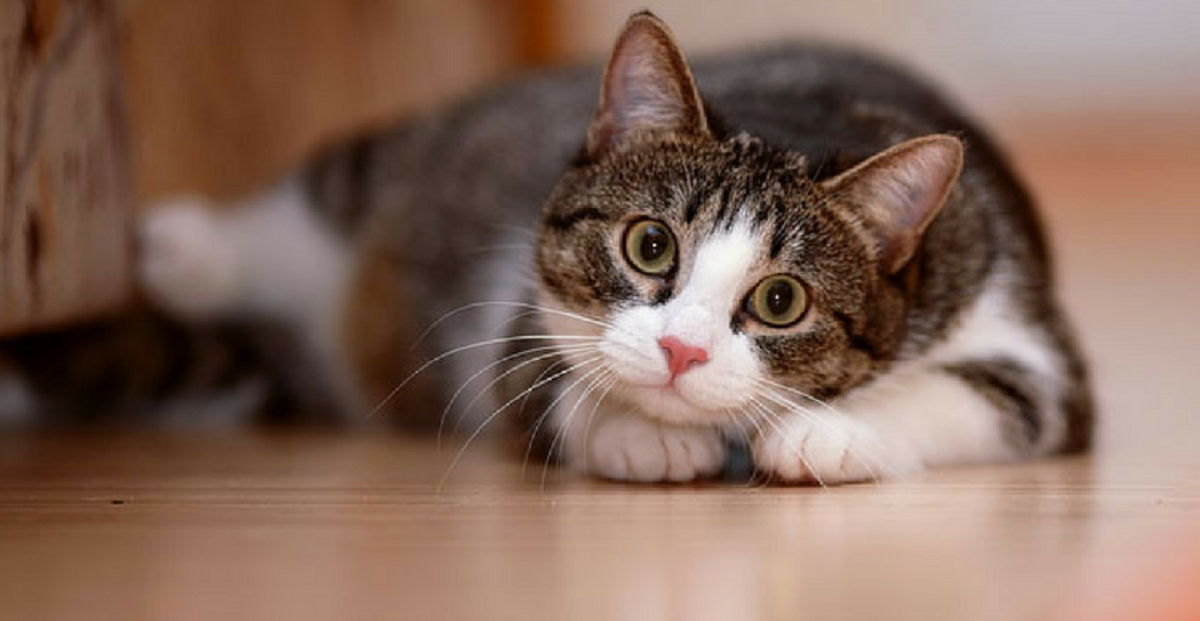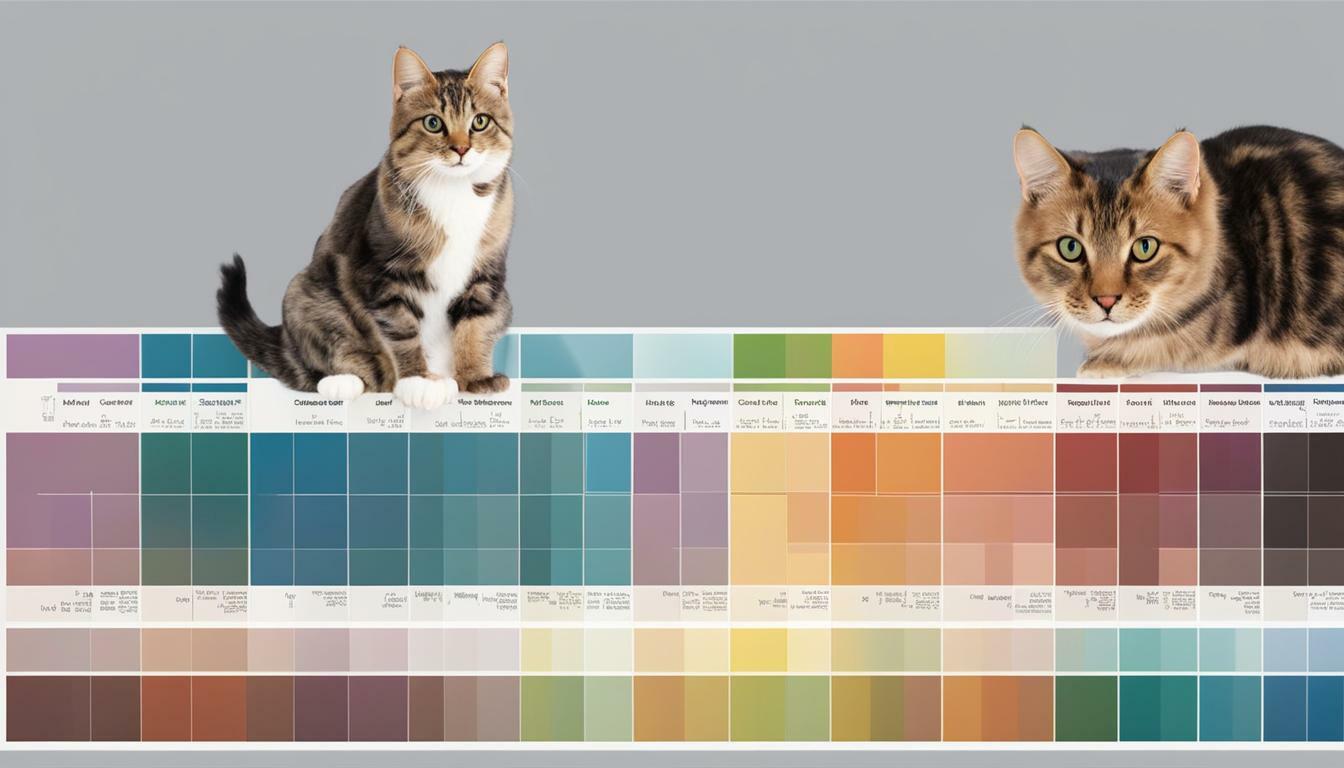As a pet owner, you may wonder whether it’s safe to share certain foods with your feline friend. One common question that arises is whether cats can eat celery. Let’s delve into this topic and explore the health benefits of celery for cats.
Can Cats Eat Celery? Yes! They can safely eat celery.
- Cats can eat celery as an occasional treat.
- Celery can offer health benefits for cats, including supporting digestion, kidney function, and providing antioxidants.
- It’s important to feed celery in moderation and observe any adverse reactions.
- Consult with your vet before making any dietary changes for your cat.
- Always avoid giving your cat celery with peanut butter or raisins, as these can be harmful or toxic to cats.
Can Cats Like Celery?
When it comes to cats and their preferences, it’s hard to predict whether they will enjoy celery or not. Like humans, cats have unique tastes, and some may find the satisfying crunch of celery appealing, while others may be indifferent to it. However, there have been anecdotal reports of cats reacting to celery leaves in a way similar to catnip, displaying playful behavior or even becoming obsessed with celery.
It’s important to note that each cat is different, and their individual preferences may vary. While some cats may show interest in celery, others may simply ignore it. As with any new food, it’s best to offer a small piece of celery to your cat and observe their reaction. If they seem uninterested or show signs of dislike, it’s advisable not to force them to eat it.
Cats and Celery Leaves: Celery leaves can be an interesting addition to the experience. Some cats may show a stronger reaction to the leaves than the celery stalk itself. It’s worth noting that not all cats will have the same response, and it’s essential to monitor your cat’s behavior after exposure to celery leaves to ensure they are not experiencing any adverse effects.
Health Benefits of Celery for Cats
Celery is not only a crunchy and refreshing snack for humans, but it can also offer some health benefits for our feline friends. When it comes to feline nutrition, incorporating small amounts of celery into a cat’s diet can provide nutritional value.
One of the notable health benefits of celery for cats is its high fiber content. Fiber is essential for supporting healthy digestion and preventing constipation in cats. The fiber in celery can help regulate bowel movements and promote a healthy digestive system.
In addition to aiding digestion, celery can also support kidney function in cats. Celery acts as a natural diuretic, which can help flush out toxins and support the overall health of the kidneys. By incorporating small amounts of celery into a cat’s diet, we can assist in maintaining optimal kidney function.
Celery is also rich in antioxidants, which can help prevent oxidative damage to cells, proteins, and DNA in cats. Antioxidants play a vital role in neutralizing harmful free radicals and reducing the risk of various health issues. By including celery in a cat’s diet, we can provide them with the benefits of these powerful antioxidants.
How Much Celery Can Cats Eat?
Feeding celery to cats requires careful consideration of the quantity. While celery can offer some health benefits to cats, it’s important not to overdo it. Starting with a small piece is recommended, as this allows you to observe any adverse reactions over a 24-hour period. Feeding too much celery to cats can lead to digestive distress and dehydration, which can be harmful to their well-being.
Cats should consume celery in moderation, ideally following the 10% treats rule. This means that treats, including celery, should make up no more than 10% of a cat’s overall caloric intake. As a general guideline, cats should not consume more than ¼ cup of finely chopped celery over the span of a week. It’s essential to consult with your veterinarian before introducing any new foods or treats into your cat’s diet to ensure it aligns with their specific nutritional needs.
Remember, each cat is unique, and their tolerance for celery may vary. Some cats may enjoy the crunch and texture of celery, while others may be indifferent to it. It’s always important to prioritize your cat’s preferences and avoid making them eat something they don’t enjoy, especially when it comes to non-essential foods like celery. Your veterinarian can provide personalized guidance on how much celery is suitable for your cat’s individual dietary requirements.
Can Cats Eat Celery with Peanut Butter and Raisins?
When it comes to feeding cats, it’s important to know what foods are safe and which ones should be avoided. While cats can enjoy a variety of human foods as an occasional treat, certain foods like peanut butter and raisins are not suitable for feline consumption.
Let’s start with celery and peanut butter. While cats can eat small amounts of celery, it’s best to skip the peanut butter altogether. While some cats may find the flavor of peanut butter appealing, it is high in fat and can cause digestive upset in cats. Additionally, many brands of peanut butter contain xylitol, a sugar substitute that is toxic to cats. It’s essential to ensure that any peanut butter you offer your cat is xylitol-free and given in moderation.
As for raisins, they should always be kept away from cats. Grapes and raisins are toxic to cats and can cause kidney failure. Even a small amount of grapes or raisins can be extremely dangerous. If your cat accidentally ingests raisins, it’s important to seek immediate veterinary attention.
Can Cats Drink Celery Juice and Eat Celery Seed?
Cats and celery juice is an interesting combination. While celery juice is not harmful to cats in small quantities, it’s important to remember that cats have specific dietary needs that may not be met by this particular beverage. As always, it’s best to consult with your veterinarian before introducing any new food or drink into your cat’s diet.
Celery seeds, on the other hand, are often used in Eastern medicine and herbal supplements. While they may have potential health benefits for humans, it’s crucial to exercise caution when considering giving celery seeds to your cat. The high concentration of certain compounds in celery seeds may not be suitable for your feline friend, depending on their medical history and condition. It’s best to seek professional advice from your vet before incorporating celery seeds or any other herbal supplements into your cat’s diet.
Herbal Supplements for Cats: What You Should Know
When it comes to herbal supplements for cats, it’s important to remember that cats are not small humans. Their bodies metabolize substances differently, and what may be safe for us may not be safe for them. Some herbal supplements may contain ingredients that can be toxic to cats or interact negatively with their medication.
Therefore, it’s vital to consult with your veterinarian before giving your cat any herbal supplements, including celery seed. They can provide expert guidance based on your cat’s specific needs and medical history. Your veterinarian may recommend alternative ways to support your cat’s health that are safer and more appropriate for their unique physiology.

While cats can drink celery juice in small quantities, it’s essential to ensure it aligns with their specific dietary needs. As for celery seeds and other herbal supplements, always consult with your vet before introducing them to your cat’s diet. Your veterinarian’s insight and expertise will help you make the best decisions for your furry friend’s health and well-being.
Conclusion
Cats can safely enjoy celery as an occasional treat. While it may not be found in commercial cat foods, celery can provide some health benefits for our feline friends. Not only does it offer a satisfying crunch and texture that cats may enjoy, but it also contains fiber that supports healthy digestion and prevents constipation. Additionally, celery acts as a natural diuretic, promoting kidney function and aiding in the elimination of toxins from the body. The presence of antioxidants in celery can also help protect cats from oxidative damage.
When introducing celery to your cat’s diet, it’s essential to do so in moderation. Start with a small piece and monitor your cat’s reaction for 24 hours. Too much celery can lead to digestive issues and dehydration. Remember to consult with your veterinarian before making any significant dietary changes for your cat, including the introduction of new foods or treats.
In conclusion, while cats can eat celery, it should only be offered as an occasional treat, and careful observation of their reaction is necessary. Providing a balanced and nutritionally complete diet is crucial for their overall well-being. By consulting with your vet and following their guidance, you can ensure that your cat’s dietary needs are met while incorporating celery as a safe and enjoyable addition to their occasional treat repertoire.
FAQ
Can cats eat celery?
Yes, cats can eat celery as an occasional treat.
Do cats like celery?
Cats are unpredictable when it comes to their preferences, so it’s difficult to know if they will like celery until you offer it to them.
What are the health benefits of celery for cats?
Celery is high in fiber, which supports healthy digestion and helps prevent constipation. It also acts as a natural diuretic, supporting kidney function. Additionally, celery contains antioxidants that can help prevent oxidative damage in cats.
How much celery can cats eat?
Cats should not consume more than ¼ cup of finely chopped celery over the span of a week. Treats should make up no more than 10% of a cat’s overall caloric intake.
Can cats eat celery with peanut butter and raisins?
Cats should only be given a very small amount of peanut butter as a treat. Raisins should never be given to cats as they are toxic.
Can cats drink celery juice and eat celery seed?
Celery juice is not harmful to cats in small quantities, but it’s best to limit it to about one tablespoon per day. Before giving your cat any herbal supplements like celery seeds, it’s important to consult with your veterinarian.






